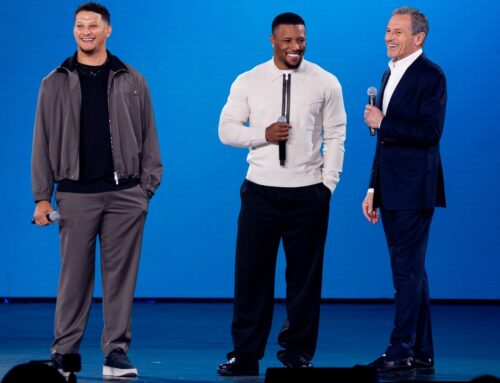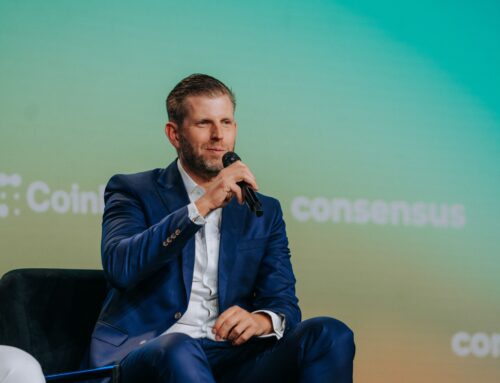OPINION: Cannabis lounges are a bust (so far)
April 24, 2025
Four years after the government officially allowed consumption lounges to become part of Nevada’s emerging cannabis market, it looks as if the dream of creating a “new Amsterdam” in the Mojave is still far from becoming reality.
Of course, let’s be honest: Considering the way government has handicapped the industry, such a dream was always going to be a challenge.
With Smoke and Mirrors closing their doors earlier this month, Dazed! inside Planet 13 is now the only state-regulated lounge in all of Nevada. The Las Vegas Paiute Tribe’s Sky High consumption lounge also remains open, but being regulated by the tribe rather than state authorities is likely a distinct advantage.
Regardless, the fact that the state’s first consumption lounge has closed shop after little more than a year in business doesn’t bode well for the industry. The recent closure would seemingly indicate there might not be any real desire for the sort of Amsterdam experience the industry had hoped to cultivate in Las Vegas. At the very least, it’s pretty clear such a future won’t be as easy as “build it and they will come.”
However, it’s not mere market forces that are holding back the dreams of cannabis entrepreneurs. From the beginning, overzealous attempts to regulate potential lounges have stymied the aspirations of countless would-be operators.
From stringent local restrictions on where lounges can operate to an unconscionably cumbersome state application process, the entire framework epitomizes the worst sort of stifling bureaucratic burdens — burdens placed upon an industry already heavily laden with governmental red tape.
For starters, getting a license for a consumption lounge isn’t cheap. When the state first began accepting applications in 2022, fees for applying were $10,000 for a standalone lounge or $100,000 for a lounge connected to a retail operation. Applicants were entered into a “lottery” for one of the state’s limited number of licenses — and initial approval would be revoked if certain documentation or standards weren’t met in the first several months of the process.
Even beyond the direct cost of applying for such licenses, other financial burdens loomed large for would-be lounge operators. State law, for example, requires they have $200,000 in “operational liquidity” before opening their doors to the public.
Seemingly, lawmakers realized the prohibitively expensive nature of the requirements. As part of a “social equity” exemption designed to give less affluent and disadvantaged owners access to the process, the fee was substantially reduced for individuals who met certain criteria — criteria that included living in a disadvantaged neighborhood and having been previously convicted of a marijuana crime or related to someone who had.
Even with a fee as low as $2,500, however, navigating the process to obtain a social equity license was also fraught with difficulty. Six out of 10 applicants for such licenses were disqualified in 2022 with little explanation from authorities, and half a dozen applicants were denied approval in 2023 due to residency requirements, according to The Nevada Independent.
In other words, just getting the required permission slip from government was quite an ordeal, let alone complying with the more restrictive regulations imposed by local authorities.
No wonder 2021’s legalization didn’t result in a tsunami of Amsterdam-style cafes opening up throughout the state. With those barriers to entry imposed on would-be lounge operators, it’s little surprise there are only a precious few — nearly zero — operators capable of turning such an endeavor into a lasting reality.
After all, building a business in an emerging market is daunting enough, even in sectors of the economy far less laden with government overreach than legal cannabis.
Indeed, the failure rate of new businesses is often discouraging to would-be entrepreneurs in all industries. Nearly half of all small businesses close within five years of setting up shop, and more than 1 in 5 never even get beyond the first 12 months. That’s a failure rate that makes it difficult — even under normal conditions — for anyone to feel confident in venturing into the world with an expensive plan for building something no one else has yet attempted.
In other words, it’s hard enough for entrepreneurs to turn their dreams into reality. Adding massive and restrictive government bureaucracy into the mix certainly isn’t helping.
Nevada’s regulatory structure for cannabis lounges has taken what would have already been a challenging entrepreneurial task — building a brand-new environment in which consumers could enjoy their preferred cannabis products — and added countless layers of complexity and cost. The result has been a market so constricted and artificially restrained that after four years only two state-regulated consumption lounges have managed to open their doors — and only one of them has been able to keep them open.
That doesn’t bode well for a future Amsterdam in the Mojave, regardless of how consumers might have felt about such a prospect.
Michael Schaus is a communications and branding expert based in Las Vegas, Nevada, and founder of Schaus Creative LLC — an agency dedicated to helping organizations, businesses and activists tell their story and motivate change. He has more than a decade of experience in public affairs commentary, having worked as a news director, columnist, political humorist, and most recently as the director of communications for a public policy think tank. Follow him on Twitter @schausmichael or on Substack @creativediscourse.
Search
RECENT PRESS RELEASES
Related Post




